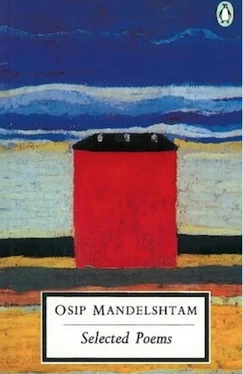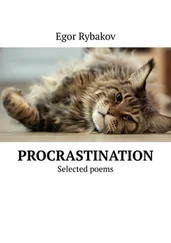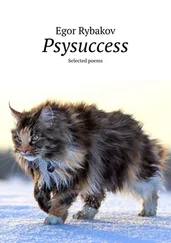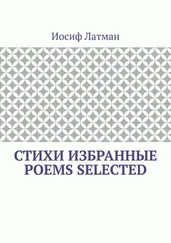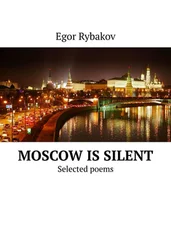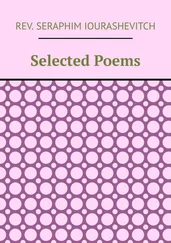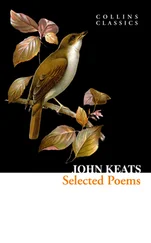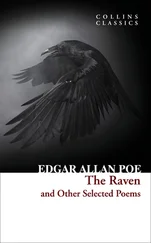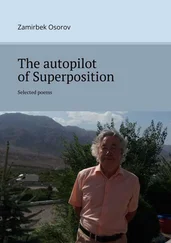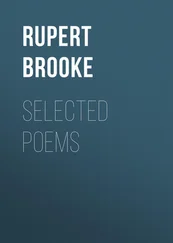Osip Mandelshtam - Selected Poems
Здесь есть возможность читать онлайн «Osip Mandelshtam - Selected Poems» весь текст электронной книги совершенно бесплатно (целиком полную версию без сокращений). В некоторых случаях можно слушать аудио, скачать через торрент в формате fb2 и присутствует краткое содержание. Город: London, Год выпуска: 1991, ISBN: 1991, Издательство: Penguin Books, Жанр: Поэзия, на английском языке. Описание произведения, (предисловие) а так же отзывы посетителей доступны на портале библиотеки ЛибКат.
- Название:Selected Poems
- Автор:
- Издательство:Penguin Books
- Жанр:
- Год:1991
- Город:London
- ISBN:978-0-14-196539-0
- Рейтинг книги:4 / 5. Голосов: 1
-
Избранное:Добавить в избранное
- Отзывы:
-
Ваша оценка:
- 80
- 1
- 2
- 3
- 4
- 5
Selected Poems: краткое содержание, описание и аннотация
Предлагаем к чтению аннотацию, описание, краткое содержание или предисловие (зависит от того, что написал сам автор книги «Selected Poems»). Если вы не нашли необходимую информацию о книге — напишите в комментариях, мы постараемся отыскать её.
Selected Poems — читать онлайн бесплатно полную книгу (весь текст) целиком
Ниже представлен текст книги, разбитый по страницам. Система сохранения места последней прочитанной страницы, позволяет с удобством читать онлайн бесплатно книгу «Selected Poems», без необходимости каждый раз заново искать на чём Вы остановились. Поставьте закладку, и сможете в любой момент перейти на страницу, на которой закончили чтение.
Интервал:
Закладка:
Line 21: Ronen: ‘The theme of the forgotten or lost word of no. 113… is reinterpreted here and in other poems of 1921–25 (nos. 130, 131 and 136, etc.) in historical terms: the word becomes the heirloom, passed from one generation to another, or lost in transmission.’
Line 35 – ‘Fourth Estate’: Ronen: ‘ not the press, but the razochintsy or classless intelligentsia (to which Mandelshtam felt that he belonged).’
Line 40 – ‘the little bone of a pike’: Ronen: ‘Just as the horseshoe is, in Whoever finds a horseshoe , a talisman against hungry time, so the pike’s bone… becomes… a talisman against… the hungry State.’
Line 42 – ‘Blissful laughter’: ‘the holiday laughter of the Saturnalia…’ etc.
Line 44 – ‘the mighty sonatas’: Ronen points to a passage from Mandelshtam’s prose work The Noise of Time in which Herzen is mentioned, ‘whose stormy political thought will always sound like a Beethoven sonata’.
(261) The original has six four-line stanzas.
POEMS PUBLISHED POSTHUMOUSLY
(222) Lady Godiva: ‘In 1040 Leofric, Earl of Mercia and Lord of Coventry, imposed certain exactions on his tenants, which his Lady besought him to remove. He said he would do so if she would ride naked through the town’ (Brewer’s Dictionary of Phrase and Fable ).
(227) My version has benefited from Nabokov’s salutary, scholastic savaging of Robert Lowell’s adaptation of this poem ( New York Review of Books , 4 December 1969).
(258) ‘The paintings he most likely had in mind were Monet’s Lilas au soleil and Pissarro’s Boulevard Montmartre and Place du Théâtre Français, Printemps’ (J. Baines).
(From 267 and 268) My abbreviated version combines two poems on Ariosto. ‘The manuscripts and drafts [of the first] were taken away when we were searched in May 1934. In Voronezh, O.M. tried to remember the text, but his memory failed him and he wrote a second Ariosto . Soon, on a trip to Moscow, I found the 1933 Ariosto in one of my hiding-places. So there were now two poems with the same theme and material. This is a story in the spirit of the times – and I present it to future commentators’ (N.M., from Chapter 42 , translated by Donald Rayfield).
Line 2 – Peter the Great learnt how to shave beards, pull teeth and chop off heads. Through Peter, O.M. is alluding to Stalin.
(286) The poem that led to O.M.’s first arrest, in 1934. As he said to N.M.: ‘Above all, I detest… fascism.’
Line 4 – ‘man of the mountains’: for this see the version by Richard and Elizabeth McKane in Osip Mandelshtam: The Moscow Notebooks (Bloodaxe, 1991).
From Journey to Armenia : Akhmatova wondered how, in 1933, this passage got past the censor. In fact, the editor of Star , a Leningrad literary journal, disobeyed the censor; it cost him his job, but he was not arrested.
Arshak – O.M.; Shapukh – Stalin; Darmastat – Bukharin (executed 1938), who was O.M.’s protector and responsible for his being able to journey to Armenia.
(296) Lament inspired by O.M.’s contemplation of N.M.’s fate. In 1934 O.M. was arrested and spent two weeks in the Lubianka prison, where he was interrogated and tortured. As a supreme and miraculous act of clemency on the part of the ‘Boss’, he was sentenced to only three years’ exile; Stalin ordered that O.M. should be ‘isolated but preserved’.
Of the Voronezh poems D. Rayfield has said: ‘The poet as a thinker, as an incarnation of the Hellenic spirit, barely functions. He is only an eye bewildered by forests, rivers, earth, wooden houses, the open spaces and the boundless sky of the steppes, which itself seems to him to be an eye on a cosmic plane. His thoughts are paralysed by an instinctive feeling of a predator’s presence, the Kremlin which is now the axis on which the poet’s world rotates’ (‘Mandelshtam’s Voronezh poetry’, Russian Literature Triquarterly , 1975); ‘the poetry of 1933 and afterwards has a posthumous quality, breathing borrowed air on borrowed time’ ( Grosseteste Review ; Vol. 7, Nos. 1–3. ‘Deaths and Resurrections: the Later Poetry of Osip Mandelshtam’).
(306) Curvature, like that of the earth’s surface, is a curious feature of Red Square, both as viewed from one side to the other, and also along the other axis, as it slopes down to the River Moskva. ‘Red Square symbolizes the rotten core of the system… [The] Stalinist Terror… knows no limits’ (J. Baines).
(307) ‘foot’: ‘the human and the metric foot which must both walk the black earth’ (D. Rayfield).
‘muttering lips’: ‘the symbol of [his] poetry’ (J. Baines).
(318) N.M. brought O.M. ‘a souvenir of the past, a small bag of stones from Koktebel… [O.M.] affirms his predilection for the more prosaic pebbles from the sea’ (J. Baines). There is an untranslatable pun in the second line: opal means ‘opal’, opala ‘disgrace’ in Russian.
(319) O.M. ‘was beginning to see the soldiers as victims rather than oppressors, as vassals in the power of oriental-style despots, with their exotic retinues… of janissaries and eunuchs’ (J. Baines).
‘Lines on Stalin’: O.M.’s ‘positive’ ode to Stalin. The original consists of seven twelve-line stanzas.
In January 1937, in exile, with the rope around his neck, O.M. tried to write an ode in praise of Stalin to save his wife’s life and his own. The attempt failed: this is part of the remarkably ambiguous result.
See Slavic Review , 1975; Bengt Jangfeldt: ‘O.M.’s “Ode” to Stalin’, Scando-Slavica , 1976; Clarence Brown: ‘Into the Heart of Darkness: Mandelshtam’s Ode to Stalin’, Slavic Review , 1967; and J. Baines: Mandelshtam: The Later Poetry .
(350) ‘The historical perspective which caused Mandelshtam to see [Stalin] as the Judas not so much of present but of future generations was seldom achieved by his contemporaries in 1937, at the height of the Terror’ (J. Baines).
(354) Third stanza, line 4: the ‘shadow’ Mandelshtam might have ‘begged favour of’ is Stalin.
(358) Henry Gifford (in a letter to me): ‘The “stale loaves” suggest to me Dante’s bread that tastes of salt, or what is called in Richard II “the bitter bread of banishment”.’
(366) ‘Urals’: in 1934 Mandelshtam was exiled to the Urals, to Cherdyn (where – thinking he was going to be arrested again by the secret police – he threw himself out of the window of the hospital), and travelled along the Volga to arrive there.
‘These steppes’ refers to the area around Voronezh.
I am indebted to R. Chandler for drawing my attention to the fact that ‘here are all my rights’ refers to Pushkin’s poem From Pindemonte (1836), in which he says he doesn’t mind about censorship, not having the right to vote, etc.; all he cares about is that he should be left to himself, not have to give account to others of what he does, and be free to wonder at the godlike beauties of nature and art: ‘Here is my happiness! Here are my rights…’
R. F. Holmes has pointed out to me that ‘of course both poets did care about other things than being left to themselves… Mandelshtam, besides attacking Stalin, attacked one Caesar at least, two Tsars, Napoleon, Hitler and Mussolini.’ (In Rome , composed in 1937, Rome is characterized as a ‘nursery for murder’; ‘The degenerate chin of the dictator/Sags over Rome’).
(367) This poem was written during the time when Mandelshtam was particularly obsessed with Joseph Stalin. Wasp, in Russian, is osa , axis is os ’. Joseph, in Russian, can be either Os ip or I os if.
Читать дальшеИнтервал:
Закладка:
Похожие книги на «Selected Poems»
Представляем Вашему вниманию похожие книги на «Selected Poems» списком для выбора. Мы отобрали схожую по названию и смыслу литературу в надежде предоставить читателям больше вариантов отыскать новые, интересные, ещё непрочитанные произведения.
Обсуждение, отзывы о книге «Selected Poems» и просто собственные мнения читателей. Оставьте ваши комментарии, напишите, что Вы думаете о произведении, его смысле или главных героях. Укажите что конкретно понравилось, а что нет, и почему Вы так считаете.
